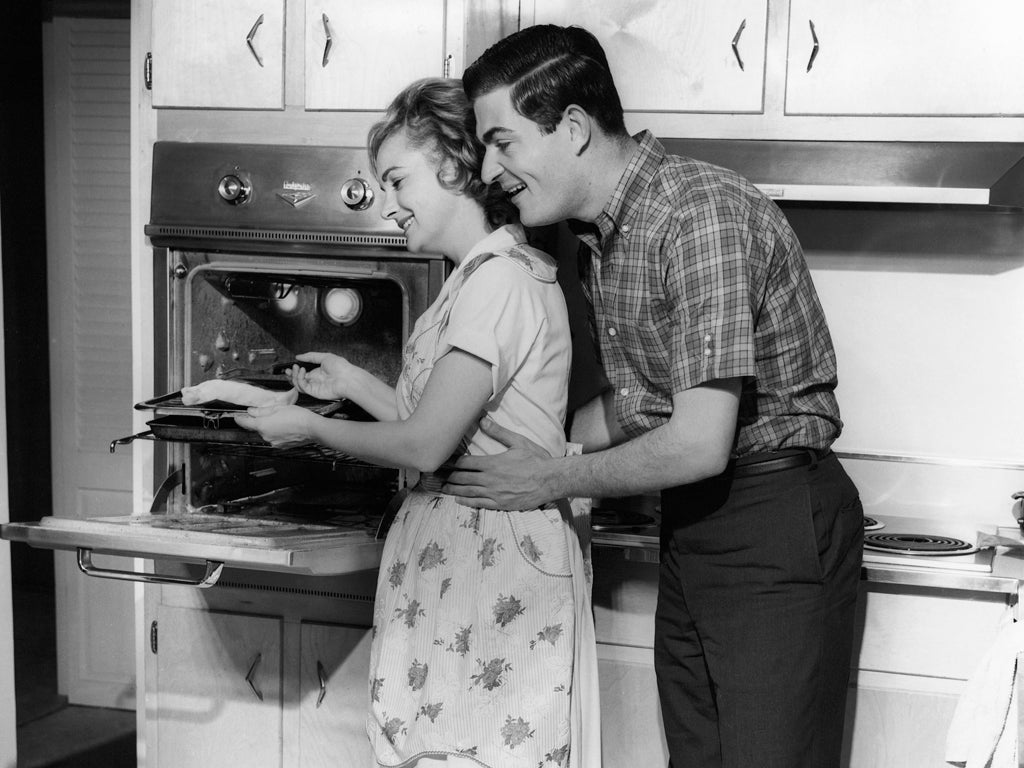One evening about 15 years ago, I was chatting at a party and mentioned something I’d just read in the social science journals.
Men, I pronounced with authority, are more likely to receive oral sex if they clean the toilet more often. My friend Katy snorted in derision. “Men would be more likely to receive oral sex if they cleaned their cocks more often,” she spluttered.
This week the peculiar academic search for associations between domestic arrangements and sexual satisfaction took a new turn. Sociologist Sabino Kornrish and his colleagues from Washington University reported that couples who follow traditional gender roles in the home have significantly more sex than couples where the husband does more of the housework. This comes in stark contradiction to a broad body of recent literature suggesting that more egalitarian households are also more frisky.
Sections of the world’s media could scarcely conceal their glee. The Daily Mail acted like all their Wintervals had come at once. “Husbands who don't do wives' chores get 20 times more sex per year“ trumpeted the headline. Leaving aside the assumptions laid bare in the words “wives’ chores” this is just factually wrong. The research found that such men got sex 20 more times per year, not 20 times as much, a syntactically subtle but statistically vast difference.
To be specific, the study reported that number as the difference between the extreme outliers - couples in which men do pretty much all of the traditionally female housework compared to those in which they do literally none of it. According to the data, couples who share housework exactly 50/50 do so at a cost of one bonk per month, or about 20% less than the refugees from 1954.
Although often used as a rhetorical lever to get men to don the Marigolds, much of the previous research in this area, such as the toilet-cleaning example, has fundamental flaws. The explanation usually offered for the effect is that couples with more egalitarian habits are more harmonious and happy, creating a mood more conducive to intimate moments.
This is an endearingly romantic interpretation, but the research originates in colder, more cynical theories which portray sex as a commodity, traded by women in exchange for favours. The possibility that women might want sex purely for their own pleasure or to satisfy their desires doesn’t get much of a look in, nor does the possibility that at least some men might actually want to feed their own kids or live in a clean house. As the new report concludes:
“At the very least, our results are difficult to reconcile with the idea that women trade sex to men for doing what is traditionally viewed as women’s work. Based on our findings, sex seems to lie outside the realm of conventional exchange.”
I don’t find it surprising that this should be said, more depressing that it ever needed to be. The new study finds that men’s sexual activity is negatively correlated with traditionally female activities, but positively correlated with manly pursuits such as “yard work” (yes, it’s an American study), or mechanical repairs.
So while rejecting the exchange model, the authors suggest their data is more in keeping with a model of sexual scripts and gender display. Stripped of jargon, this roughly means that women are more likely to be turned on by a manly man who has just dragged home a woolly mammoth, while men secretly crave obedient partners who will keep the cave clean for their return.
However politically inconvenient this theory might be, and acknowledging the vast range of individual differences, I can accept there is probably a nugget of truth here about heterosexual human desire. Gender signifiers (whether physical or psychological) often double as erotic signifiers. However both gender signifiers and sexual scripts are almost entirely socially constructed. When our ancestors were roaming the savannah, there wasn’t much call to change the oil on an Austin Allegro. Yard work, objectively, bears far more similarity to tidying the cave than it does to wrestling sabre-toothed tigers. Somewhere down the line we have decided that yard work is manly, manly is sexy, therefore yard work is sexy. As our society continues to reinvent and reappraise gender roles we will signal and interpret our gender and sexuality in new and different ways. It is inevitable that we will begin to find different traits a turn on.
Although a new analysis, the data reported in this study is actually more than 20 years old. The authors gloss over the relevance of this but it strikes me as hugely important. What was deemed unmanly, even effeminate just a generation ago is now considered much more commonplace and neutral. It would astonish me if this did not make enormous difference to the effects described.
I have one final observation about the whole body of research in this area. It all positions sexual activity as an effect or consequence of other behaviour, while it strikes me that it can just as easily work the other way. Sex isn’t just a commodity, and isn’t just fun – it also triggers a pyrotechnic explosion of hormones, making us feel more loving and affectionate towards our partners.
This suggests to me that people who have lots of sex may feel more inclined to do the dishes, rather than the other way around. I might propose a scientific experiment when my partner gets home from today’s gruelling shift at work. I shall report back on the results just as soon as she stops hooting with laughter. That could take a while.


Join our commenting forum
Join thought-provoking conversations, follow other Independent readers and see their replies